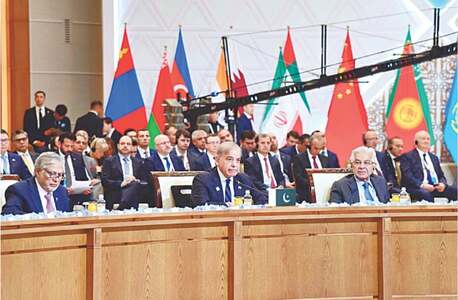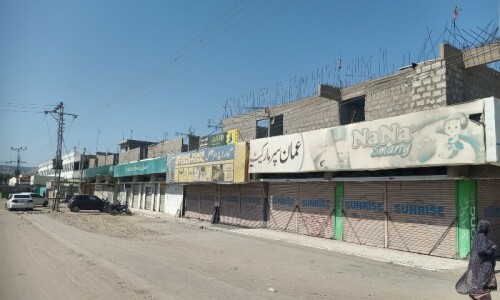ISLAMABAD: With the Shanghai Cooperation Organisation (SCO) heads of government meeting drawing closer, New Delhi is faced with a diplomatic dilemma: whether or not Prime Minister Narendra Modi should attend the summit in Islamabad.
While diplomatic sources suggest the chances of Mr Modi crossing the border are slim, India is keeping its cards close to its chest, fuelling a guessing game that has left analysts and observers on both sides of the divide wondering — will he or won’t he?“
Foreign Office spokesperson Mumtaz Zahra Baloch confirmed at the weekly media briefing on Thursday that Prime Minister Modi has been invited for the SCO Council of Heads of Government meeting, which Pakistan is hosting on Oct 15-16, under its rotating chairmanship.
Speculation about PM Modi’s participation in the SCO meeting gained momentum in the Indian media last weekend, following reports that Delhi had received an invitation. Mr Modi’s past record of skipping meetings of heads of government council — the second highest forum within SCO and instead sending a ministerial representative — fuelled media claims he would also miss this event.
Pakistan to host SCO meeting on Oct 15-16
Tensions between Islamabad and Delhi because of longstanding dispute over Kashmir, allegations of terrorism, and a history of military conflicts further reinforce the notion that Mr Modi’s in-person attendance is unlikely.
Furthermore, his possible non-attendance would align with India’s broader strategic caution in dealing with Pakistan, especially on platforms where Islamabad plays a significant host role.
India’s participation in the SCO, even otherwise, is a delicate balancing act, weighing its need for regional security cooperation against its wariness of China’s growing influence within the organisation. By engaging selectively in SCO’s economic strategies, India is pursuing a nuanced approach that aims to counterbalance Chinese dominance while fostering constructive ties with Central Asian nations.
A surprising turn, however, came earlier this week when the Indian Ministry of External Affairs (MEA), following reports in Indian media, issued an advisory to its domestic media outlets, cautioning them against speculating on PM Modi’s participation in the SCO meeting.
The advisory stated, “We are noticing that several outlets are running news that PM won’t attend a SCO meeting in Pakistan or EAM will attend a SCO meeting in Pakistan. Please note, MEA hasn’t commented on this matter and would request speculative news in this regard be avoided.”
Ironically, this advisory instead of quelling the rumors, breathed new life into them.
Diplomatic sources in both capitals still insist that not only Mr Modi’s visit to Pakistan is highly unlikely, but Delhi is also unlikely to send a high-profile figure like External Affairs Minister S. Jaishankar as his representative. Instead, India’s participation in the SCO meeting will be a closely guarded secret, leaving many to wonder who will ultimately represent the country.
India’s hesitation to attend meetings in Pakistan is a well-established stance, dating back to its boycott of the 19th Saarc Summit in November 2016, which was to be hosted by Pakistan. The boycott led to a stalemate, leaving the regional body in limbo, as the Saarc charter mandates that all member states must be present for a summit to take place. In contrast, the SCO has no such restriction, allowing for more flexibility in its meeting arrangements.
Islamabad has, meanwhile, regularly shown openness to participating in meetings hosted by India. Notably, former foreign minister Bilawal Bhutto-Zardari travelled to India in 2023 to attend an SCO meeting.
Similarly, former adviser on foreign affairs, Sartaj Aziz, visited Amritsar in December 2016 for the Heart of Asia conference. Additionally, when India hosted the SCO Council of Heads of State on July 4, 2023, in a virtual format, Prime Minister Shehbaz Sharif participated, demonstrating Pakistan’s willingness to engage despite the strained bilateral relations with India.
Published in Dawn, August 30th, 2024














































